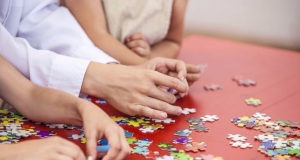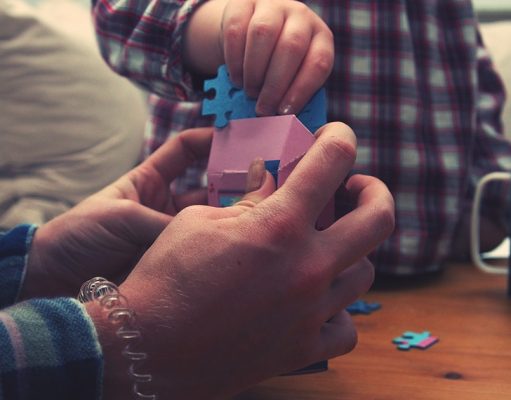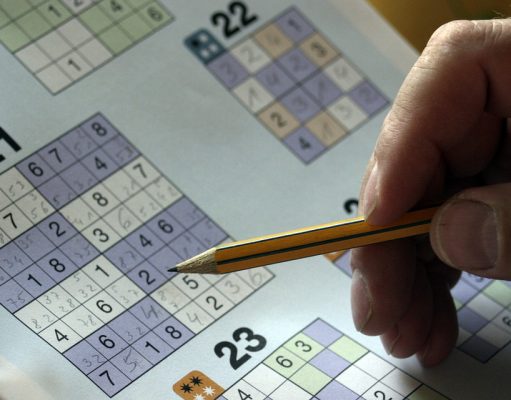Puzzles are made to test the mind and keep your brain functionality active. Usually there is a problem to solve, like pieces that need to be put together to form a picture, or words that need to be found within a bunch of letters, or a mathematical puzzle making you do sums in your head.
There are many different types of puzzles for all ages and at different levels of difficulty. It can be an evening of family fun or an activity for one. Jigsaw puzzles were created in the 18th century and quickly became very popular. By the early 20th century magazines and newspapers found them to be useful as a marketing tool. They gained more readers by publishing and promoting puzzle contests. There are even events like the World Puzzle Championships. In this digital age, online marketers have taken to creating their own puzzles as apps to increase page views by providing thought provoking and interesting quizzes for the public. Relatively reasonable in price and mostly easy to pack away, puzzles are a great way of encouraging team building and bonding within families, work colleagues and friends.
Keep scrolling down the page to learn more about this hobby. HobbyFinda has over 300 exciting hobbies to explore and with the use of our HobbyFinda Calculator, we make it easy for you to find a hobby the fun way!
You Just Can’t Beat a Classic Puzzle or Game
By: Jenny Talorman
In a world full of technology, video games, and flashy objects, board games and puzzles are becoming slowly obsolete. In fact, these once-prized entertainers are now joining the ranks of “When I was a kid, we played board games and put puzzles together on Saturday afternoons.” Now, board games and puzzles find their home at the back of the closet as something out-dated and unused.
We parents are often looking for anything that will occupy our children for a good length time. Because we are so quick to want them out of our hair, video games, computer time, and movies become optimal choices. When was the last time you had to ask your child to go play on the computer or watch another movie? Unfortunately, this kind of boredom busting isn’t the most beneficial for our children.
Puzzles, though they can seem both tedious and more boring than boredom itself, are actually quite good for children. Some children can grow easily frustrated with the monotonous process of fitting little pieces together. However, with some proper teaching, putting puzzles together is a very rewarding process. Not only is there the reward of a completely finished picture, but the educational aspects and lessons learned through puzzle are beneficial in all walks of life.
Building puzzles requires patience, aptitude for detail, planning skills, focus, and a willingness to take on challenge. These skills can be developed as puzzles are put together piece by piece. Parents and children can work together, improving and mastering their abilities in these different areas. The skills required in making puzzles will be used in experiences life-long.
Board games are similar, requiring many important skills. However, board games present plenty of other learning opportunities that puzzles do not. For example, each game presents a new set of challenges, requiring players to adapt to new situations and follow directions. Some board games set a quick pace, challenging players to focus, think quickly, and act cleverly. Other board games are much slower, requiring logical thinking skills, strategy, and patient planning.
Although it is regularly shunned in our modern society, board games also present the idea of competition. We stray away from it so easily because we want everyone to be a winner or we want no hurt feelings. However, learning how to be a good competitor, a fair player, a gracious winner, and a good loser are all important skills for any child to gain.
Yes, video games may teach some of the skills gained from building puzzles and playing board games. Computer time may also help introduce some of these skills. But there is nothing that compares to siblings and friends sitting around the dining room table playing a game of Monopoly. There is nothing quite the same as a family game night, learning strategy, sharing laughs, and practicing good competition skills together. And there’s nothing quite the same as building a 2500 piece puzzle on a cold winter day, working steadily until the picture appears.
So before you push those board games and puzzles a little deeper into the closet, think again. Your children will benefit educationally, socially, and intellectually through their use and will have the opportunity to enjoy themselves through such pastimes. Let us be parents who bring board games and puzzles back into society.
Article source: Expert Articles




















